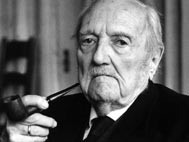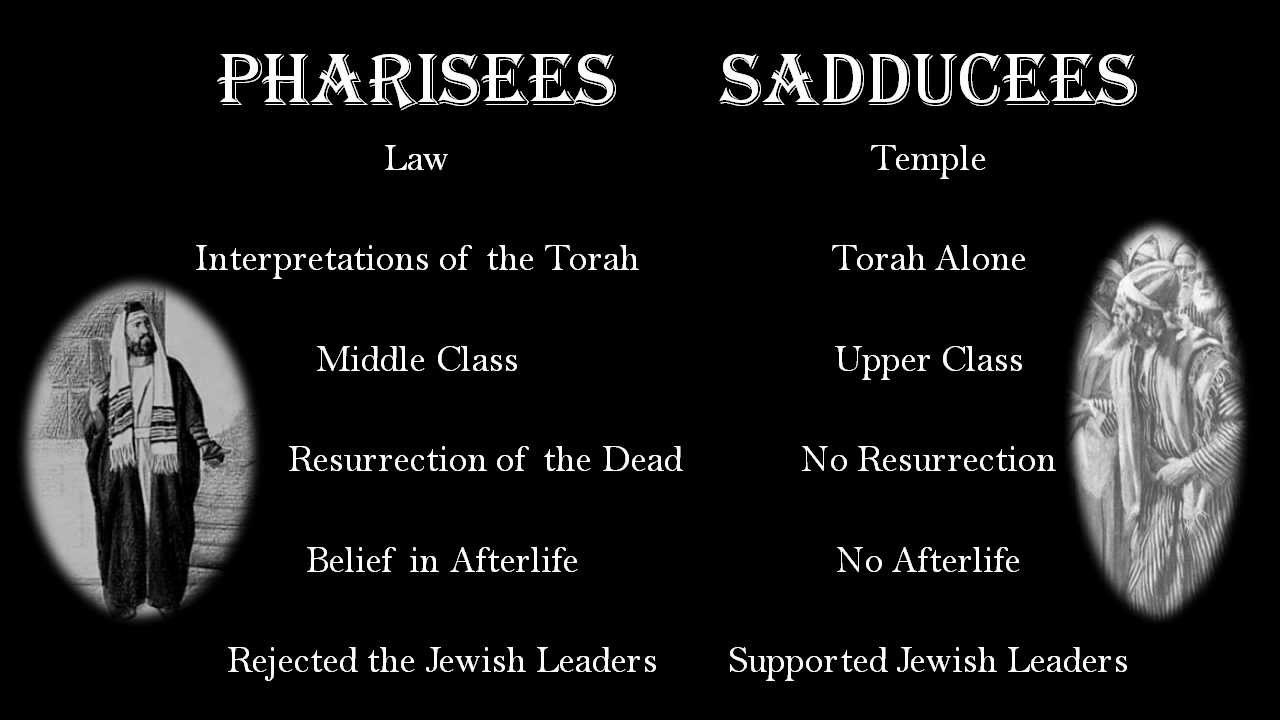Communicating Christ in a Multicultural World
4. Liberalism
Lesson Objectives
Consider the scope of "liberal" Christianity and discuss how to share the Gospel with liberally minded notional believers.
Introduction

Liberalism is located between ancient Orthodoxy and experimental new cults. Liberalism preaches a vacuum of belief; plays havoc with many en route; marginalises Western Christianity (against a background of outpourings of the Holy Spirit elsewhere).
Scriptural Position
- Paul prophesied that people in the last days would have a form of godliness (religion) but deny its power - 2 Timothy
- Also warned the Colossian Christians,
"See to it that no one takes you captive through hollow and deceptive philosophy, which depends on human tradition and the basic principles of this world, rather than on Christ" - Colossians 2.8
- Jude warned the early church:
"I felt I had to write and urge you to contend for the faith that was once for all entrusted to the saints. For certain men whose condemnation was written about long ago have secretly slipped in among you. They are godless men, who change the grace of our God into a licence for immorality and deny Jesus Christ our only Sovereign and Lord" - Jude 3, 4
- Laodicean church - "rich, acquired wealth, needed nothing", but Jesus Christ was on the outside - Revelation 3:14-22
We need to understand the way liberals view the Bible, Christ, the Christian life and the church's role in society. Many modern ministers and churches have been influenced by their thinking Have to be equipped to distinguish between liberal principles and a belief in Biblical revelation.
Names: Higher Criticism; liberalism, modernism, neo-orthodoxy, Bultmannism (after Rudolf Bultmann 1884-1976), New Hermeneutic, Tillichism (Paul Tillich). Also called "German rationalism"; this is because many of the leaders of this movement were Germans.
Sometimes it is called "higher criticism", in contrast to "lower", which is disparaged.


Bultmann believed that the historical analysis of the New Testament is both futile and unnecessary. Karl Barth started out liberal but returned to traditional Christian teaching.
How did liberalism come about?
- The historical shift from Middle Ages > Renaissance (made a cult of "man" and revived the Classics in place of the Bible) > abandonment of "absolutes" (flourishing of sects, denominations, philosophies after Reformation) > loss of Christian imprint on a nominally "Christian" society (eg 17th-18th C); acceptance by the Church of non-Christian values (eg slavery, savage prison systems; inhumane treatment of children; eugenics, Social Darwinism) led to search for a more "acceptable" message.
- Globalisation: weakening of missionary enterprise in many parts of the world (eg British colonisation did not get involved in local belief systems), acceptance of pluralism>, ecumenism > accommodation.
- Lack of credible, high level evangelical scholarship (theological, scientific), to provide answers, clarifications, challenges to secular humanism.
- Belief that Christian scholarship had to parallel Western thought and experience. (In fact, Christians in the West today are in the minority).
- Concern for material values on the part of many Christians, instead of concern for spiritual values above all else. Emphasis on man's physical and environmental welfare and capacity for self-improvement instead of emphasis on his soul.
- Concern for self-fulfilment "now", instead of concern with fulfilling God's will and preparing for eternity (liberals contend that evangelical Christians are myopic about the future and neglect pressing social needs).
Liberalism is a "religion" that deifies man and dethrones God.
Liberalism - Latin liber = "free". But what does this mean? What type of "freedom"?
Liberalism is a theological movement rooted in the early 19th century German Enlightenment, notably in the philosophy of Immanuel Kant and the religious views of Friedrich Schleiermacher. It is an attempt to incorporate modern thinking and developments, especially in the sciences, into the Christian faith. Liberalism emphasizes ethics over doctrine and experience over Scriptural authority. While essentially a 19th century movement, theological liberalism came to dominate many mainline churches in the 20th century.
The Sadducees were the liberals of Jesus day. They rejected the supernatural, including angels, spirits, resurrection, judgement, and divine intervention in the world. Jesus criticised them for "knowing neither the Scriptures nor the power of God" (Matthew 22:29

Liberals today believe that
- the Bible may, or may not, contain the Word of God, or words about God, however, it is a book, written by men, for men; its stories are folklore that should not be taken literally and can be adjusted to meet modern needs; it has no moral or spiritual authority; this impacts the way the rest of liberal thought is developed
- statements in the Bible that are seen to be contrary to modern science are ruled out
- Jesus was not divine (what is divine anyway?)
- notions of sin, judgement and atonement have been overtaken by ethics
Protestant liberal thought in its most common forms emphasizes the universal Fatherhood of God, the brotherhood of man, the infinite value of the human soul, the example of Jesus the man, and the establishment of the moral-ethical Kingdom of God on Earth.
Liberalism gave rise to other movements with varying emphases. Among these movements have been a Social Gospel, theological Feminism and (Marxist-inspired) Liberation Theology. One product of these movements is the Myth of Christian Origins which denies the divinity of Christ and the authority of the Bible.
Many modern ministers and churches have been influenced by liberal claims that evangelicalism is lacking in scholarship, unable to provide answers to secular humanism and new science.
Some differences between evangelical and liberal theologies
| Evangelicals believe that ... | Liberals believe that ... |
|---|
| There are absolutes, established by God; many things in the world are stable and fixed (Malachi 3:6a; Hebrews 13:8) | Theology must not go beyond tentative assumptions; there are no absolutes. |
| Conclusions can be reached in the field of theology that can be regarded as certain and final (John 14:6) | It is unsafe to develop fixed views about God and theological views. Who/what is God? Who/what is truth? |
| The Bible was written by men under the inspiration of the Holy Spirit; it is the infallible and inerrant Word of God (2 Peter 1:20-21). | The Bible "contains" (or may not) the Word of God or words about God; it is just a book, written by men, full of errors, subject to investigation. It is the record of people's experiences, expressed in mythological or poetic language, not reliable historical terms.
The Bible is unreliable; the Gospels are inaccurate, inconsistent.
"The Old Testament is Jewish literature, for Jews. In it are to be found folklore, defective history, half savage morality, obsolete forms of worship based on primitive and erroneous ideals of the nature of God and crude science". (Bishop Ernest Barnes, 1 April 1874 - 29 November 1953, an English mathematician and scientist who later became a liberal theologian and Catholic bishop.)
Thomas Jefferson (a Deist) went through the Gospels picking out ethical and moral teachings and produced the "Jefferson Bible"; removed all of the miracles and much of the teachings of Jesus. |
| Faith is the basic norm for the Christian life (Hebrews 11:6). | Any modern man or women who honestly faces all the recent scientific discoveries can no longer accept the supernatural elements of Christianity. "Faith" does not need any historical or objective support because it is existential. |
| Modern man must adjust to the Bible. | The Bible must adjust to modern man. The Bible is a human document, written to inspire religious experiences. We are free to interpret it as we wish and decide what we want to keep/exclude. |
| Old Testament prophets foretold future events. Old Testament events were "types" of things to come. | The meaning of the Old Testament was limited to what the hearers understood. Typology is an unscientific abuse of interpretation by evangelical Christians. |
| Christianity includes truths about God as well as ethical standards of behaviour. | Religion is limited to ethics and morals. |
| God's Word and Christ's salvation are good for every generation and apply to every generation. | We live in a "modern" world; need a modern message. The Bible has out of date stories, concepts and values. Needs to be reinterpreted to fit current epistemologies. Changing social conditions create theological beliefs; the role of the interpreter is not to defend the beliefs but understand the social conditions that produced them. |
| The answer to our problems is for man to be reconciled to God through Jesus Christ. | The answer to our problem is man's reconciliation with man. |
| All men are sinners. | Beliefs in doctrines such as original sin offend modern sensibilities. There is no place (no need) for repentance. In some cases, "confession" may be acceptable, because of its psychological benefits.; it may have therapeutic/cathartic value. |
| Jesus Christ was both human and divine, the Son of God. | Jesus' divinity was invented by religious writers. The so-called miracles of the Bible should be seen as statements of belief, not literally; it has out-of-date stories, concepts and values. Jesus did not claim to be divine. What is "divine" anyway? |
| The death of Christ paid for the sins of the world. | Notions of sin and sacrifice are Greek/Jewish ideas that must be reinterpreted for modern times. We need to avoid "butcher shop religion". |

Jefferson Bible, showing his edits
Results of liberalism include: confusion about theologies and beliefs; selectivity (people take what they want and reject the rest, based on appeal and convenience, rather than authority); declining church attendance; naturalism; growth of cults; moral void and relativism ("No one can tell me what to believe in or how to live"); religion that has plenty of form but no power; irrelevancy (why bother with Christianity?) and death of hope.
"See to it that no one takes you captive through hollow and deceptive philosophy, which depends on human tradition and the elemental spiritual forces of this world rather than on Christ. For in Christ all the fullness of the Deity lives in bodily form, and in Christ you have been brought to fullness. (Colossians 2:8-10)

Make no mistake, good scholarship in the Christian community is essential, and God gave us our minds, to use for His purposes; are no prizes for ignorance, hubris or refusal to update our thinking and traditions, but we should check out anything that seems to erode faith.
"Typical" Signs of Liberalism
Denial of:
- the existence of the Biblical God (in some cases)
- Biblical inspiration, or emphasis on partial inspiration
- the authority of the Bible in our lives - it is up to us to find out for ourselves (all views are ultimately valid) what the Bible means for us; each person should live in the light they have
- the literality of Biblical accounts of creation, the fall, flood, Jonah, Daniel
- the Trinity
- miraculous elements of Jesus' life & ministry
- the primacy of Jesus Christ - liberals regard Jesus as a teacher of ethics
- the vicarious death of Christ
- the resurrection of Christ - "Conjuring trick with bag of bones" (former Bishop of York)
- the personhood of the Holy Spirit
- the new birth
- holiness
- judgement, the Second Coming of Christ, Hell
Emphasis on:
- modernity
- human philosophy; "critical" thinking
- learning over faith (however liberalism is a faith)
- the Bible as parable, anecdote, ethical manual
- acceptance of and/or accommodation with world religions, New Age teaching, etc.
- (valid) social issues, eg environment, human rights, sexuality, women in ministry, social justice, access and equity, economic equality, indigenous rights, "social" interpretation of the Sermon on the Mount (while missing the underlying spiritual truths); all topical issues that Christians needs to have a position on, but not at the expense of "core truth"
- political accommodation and "political correctness"
- use of the behavioural sciences (without God) to meet needs
- Christian service as a vocation rather than ministry
- the power of the Bible to inspire religious experience
- cultural relativism and situational ethics (various names, but alive and well)
RESULTS OF LIBERALISM
- confusion - many theories about authorship, eg Genesis: J l , J2, .13, El, E2, E3, PI, P2, P3, DI, m, m, RI, R2, R3b
- belief that "Christ had no authority", except as a Rabbi, teacher, good man, seer
- people become selective about what they read/believe/take as authoritative
- an environment is created for agnostic "experts" & clergy (eg Penn State University Professor claiming Jesus was homosexual because He "loved" the rich young ruler, Mark 10:21)
- shallowness, uncertainty > death of hope; man is not capable of ultimate self-fulfilment by the powers of intellect; no capacity for love, forgiveness, meaning outside of himself
- post-Christian culture and growth of neo-paganism; assumption belief in miracles and the literality of the Bible is "primitive" religion
- the Bible is not binding on anyone; no more authority in church than the Koran, Bhagavad Gita (some even quote these texts - no answer to dogmatism of other religious systems)
- declining church attendance, relevance; Christianity unable to meet peoples' felt needs
- church losing moral authority in society, eg sexuality and marriage equality debates
- church tradition becomes the basis for Biblical interpretation rather than the other way around
- form of religion, but no power
- lawlessness: rejects the author of Bible and & authority of God (cf Romans 8:5-8)
- naturalism: magnifies man and minimizes God
- futility (Romans I - "why bother with Christianity?"), cf church growth in the rest of the world
- plethora of extra-Biblical speculation & subjective theories that titillate but add no value
- growth of cults, as people become disillusioned with "the church"
- insularity - no missions vision because nothing to share
Responding to Liberalism
- Don't despair - God is alive and well!
- Be secure in the divine revelation (Jesus emphasised the literality of the OT)
- Start with revelation rather than ideology (otherwise we will pick and choose)
- Do not be anti-intellectual but overcome error with truth - John 8:32; don't put the scholar above the Word (God has magnified His Name and His Word above all things, Psalm 138:2)
- Know what and why you believe, based on fact; Billy Graham, when accused of "putting Christianity back 50 years" said he wanted to put it back 2,000 years; be a "radical" Christian (lit. back to roots)
- See past the unbelief and minister to the individual in love; find out what led to their current position (eg backsliding; disillusioned with Christians; "didn't have answers during a crisis")
- Know why you believe the Bible to be the Word of God and encourage people to know and practice it
- Emphasise the presence and power of God to meet peoples' needs; move in power ministry
- Be open to the Holy Spirit- only He can bring people to genuine repentance
- Practice honest hermeneutics/exegesis
- Study strong apologetics, to answer critics and seekers
- Get back to basics - Isaiah 51:10
- Have a Christocentric faith - John 15:3, 4
- Do not neglect social involvement, or the gap will be filled by others
"Not by might, nor by power, says the Lord (Zechariah 4:6)





